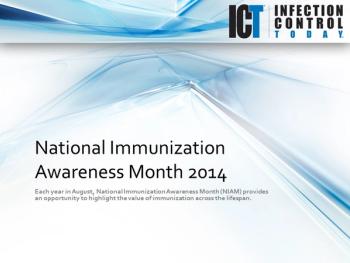
News
Advertisement


Advertisement

VIRGO, the parent company of Infection Control Today magazine, has been acquired by global exhibition and information leader Informa plc.

Fifteen years ago, MIT professor John Essigmann and colleagues from the University of Washington had a novel idea for an HIV drug. They thought if they could induce the virus to mutate uncontrollably, they could force it to weaken and eventually die out - a strategy that our immune system uses against many viruses.


Advertisement























Advertisement
Advertisement
Trending on Infection Control Today
1
Bug of the Month: The Quiet Guest in the Dust
2
Continuous Photohydrolysis Disinfection Cuts MDROs, COVID-19, and Hospital Transfers in Long-Term Care, Study Finds
3
Manual Cleaning vs Automation: Achieving Consistent Cleanliness for Ultrasound Device Reprocessing
4
Influenza D and Canine Coronavirus: Why Underrecognized Animal Viruses May Be the Next Respiratory Threat
5